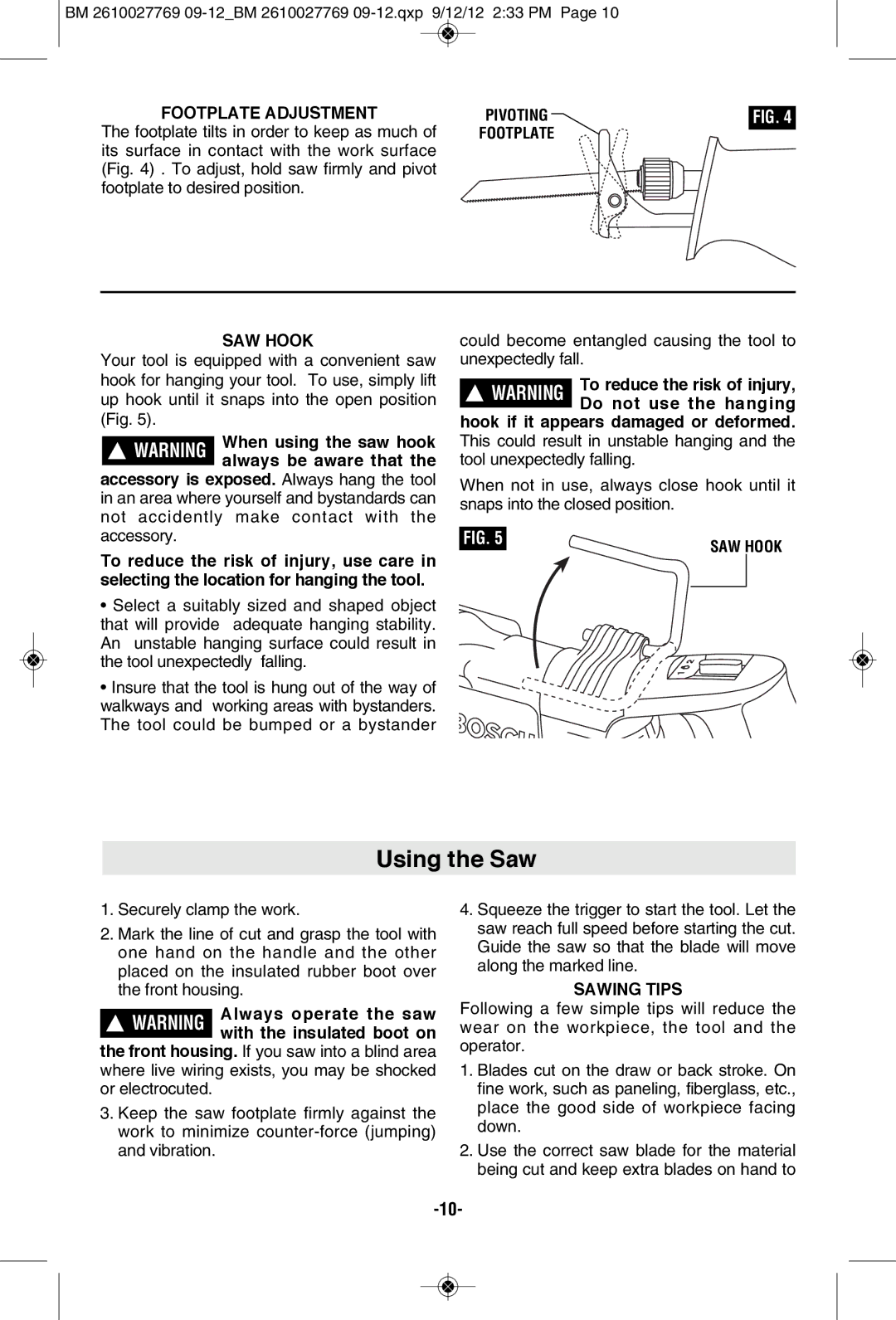
BM 2610027769 09-12_BM 2610027769 09-12.qxp 9/12/12 2:33 PM Page 10
FOOTPLATE ADjUSTMENT
The footplate tilts in order to keep as much of its surface in contact with the work surface (Fig. 4) . To adjust, hold saw firmly and pivot footplate to desired position.
PIVOTING | FIG. 4 |
FOOTPLATE |
|
SAW HOOK
Your tool is equipped with a convenient saw hook for hanging your tool. To use, simply lift up hook until it snaps into the open position (Fig. 5).
!WARNING When using the saw hook always be aware that the
accessory is exposed. Always hang the tool in an area where yourself and bystandards can not accidently make contact with the accessory.
To reduce the risk of injury, use care in selecting the location for hanging the tool.
could become entangled causing the tool to unexpectedly fall.
! WARNING To reduce the risk of injury, Do not use the hanging
hook if it appears damaged or deformed. This could result in unstable hanging and the tool unexpectedly falling.
When not in use, always close hook until it snaps into the closed position.
FIG. 5 | SAW HOOK |
|
• Select a suitably sized and shaped object
that will provide adequate hanging stability.
An unstable hanging surface could result in ![]()
![]() the tool unexpectedly falling.
the tool unexpectedly falling.![]()
• Insure that the tool is hung out of the way of walkways and working areas with bystanders. The tool could be bumped or a bystander
Using the Saw
1.Securely clamp the work.
2.Mark the line of cut and grasp the tool with one hand on the handle and the other placed on the insulated rubber boot over the front housing.
!WARNING Always operate the saw with the insulated boot on
the front housing. If you saw into a blind area where live wiring exists, you may be shocked or electrocuted.
3.Keep the saw footplate firmly against the work to minimize
4.Squeeze the trigger to start the tool. Let the saw reach full speed before starting the cut. Guide the saw so that the blade will move along the marked line.
SAWING TIPS
Following a few simple tips will reduce the wear on the workpiece, the tool and the operator.
1.Blades cut on the draw or back stroke. On fine work, such as paneling, fiberglass, etc., place the good side of workpiece facing down.
2.Use the correct saw blade for the material being cut and keep extra blades on hand to
